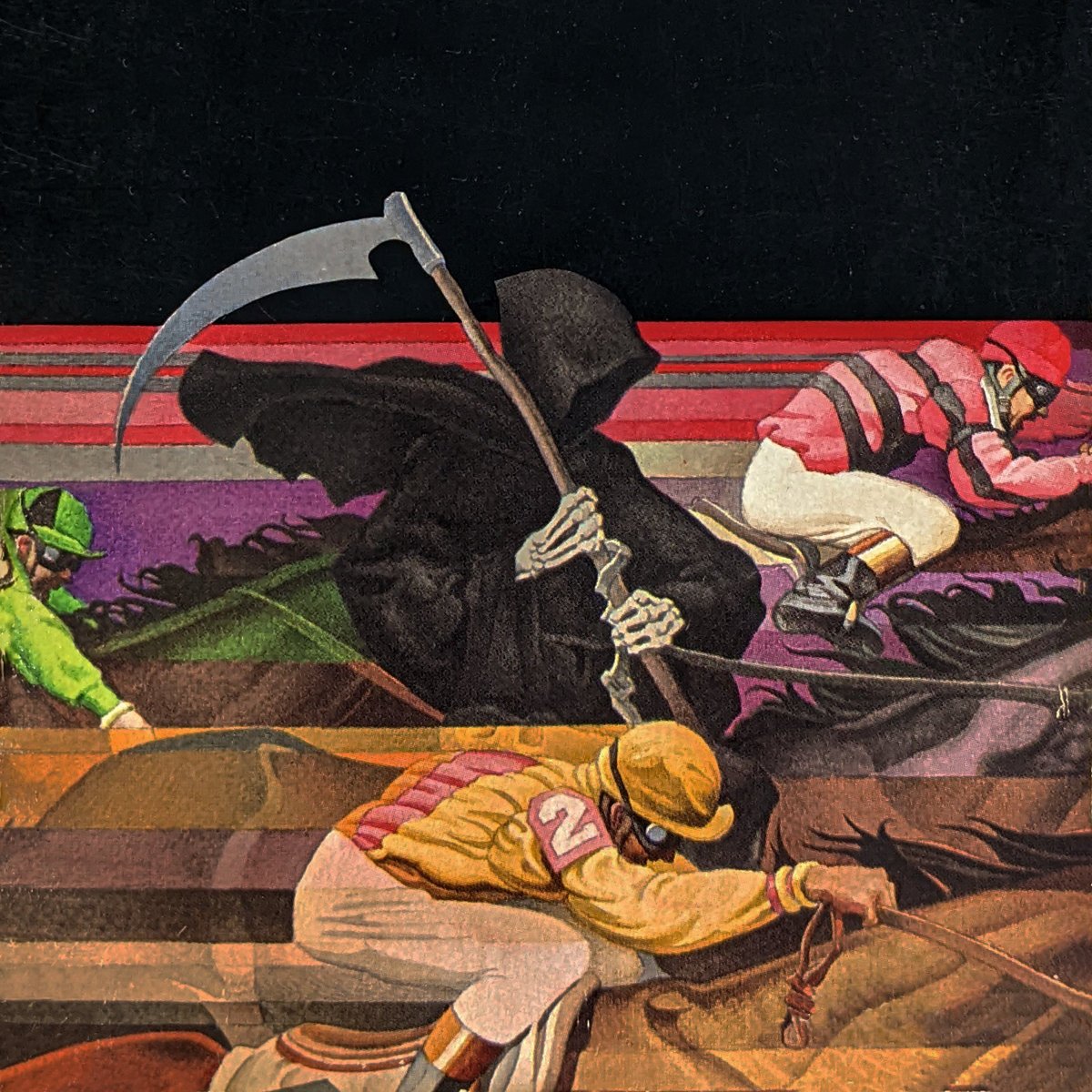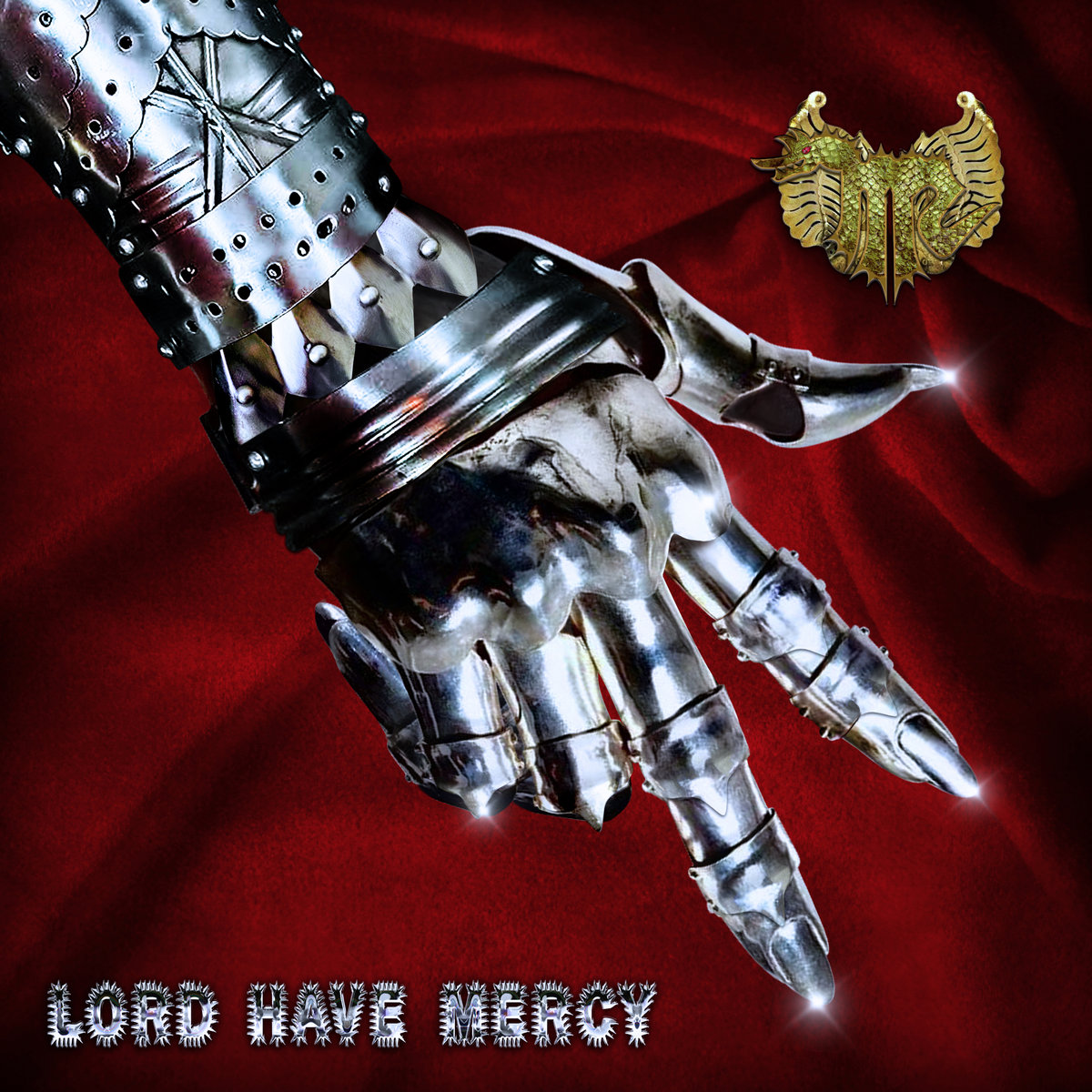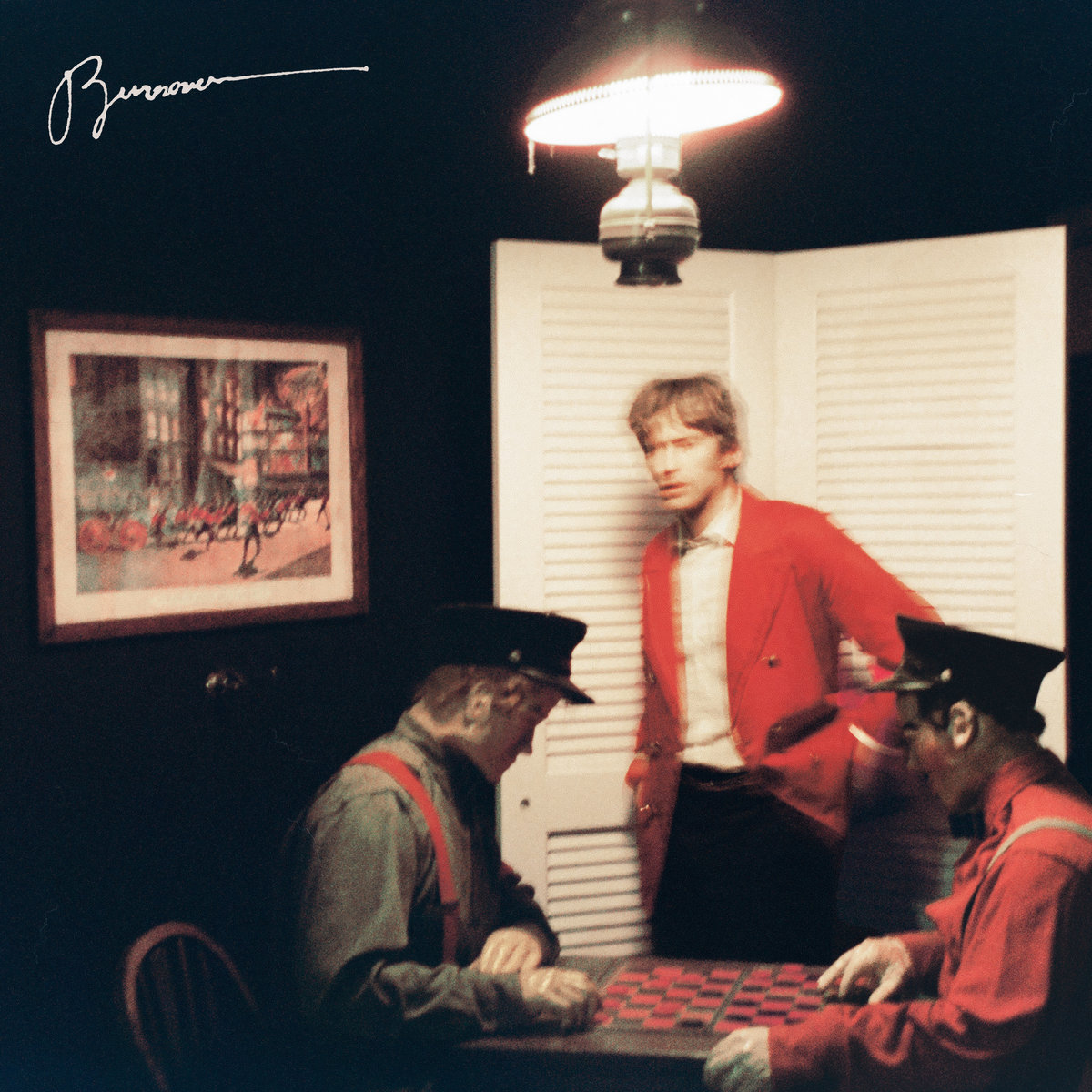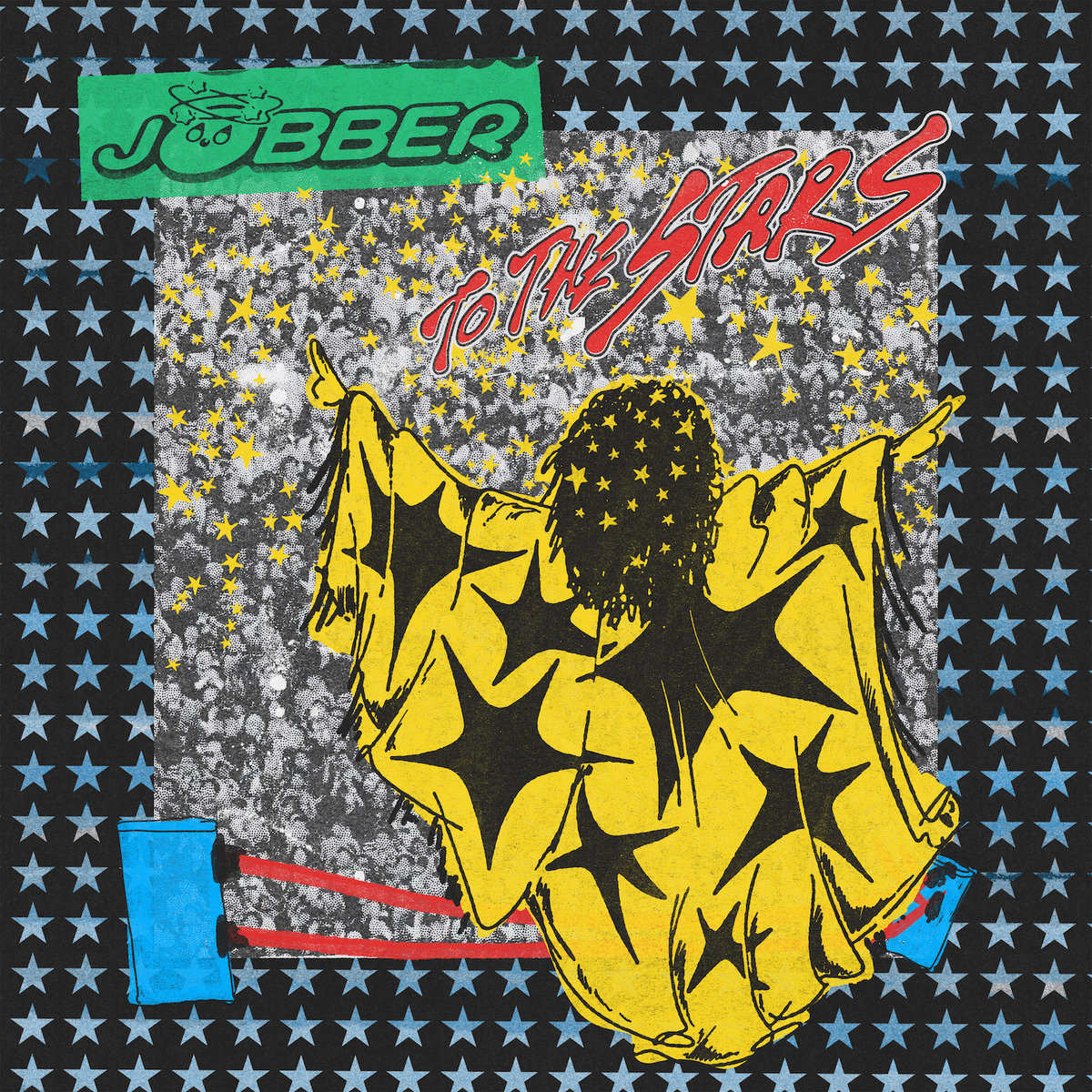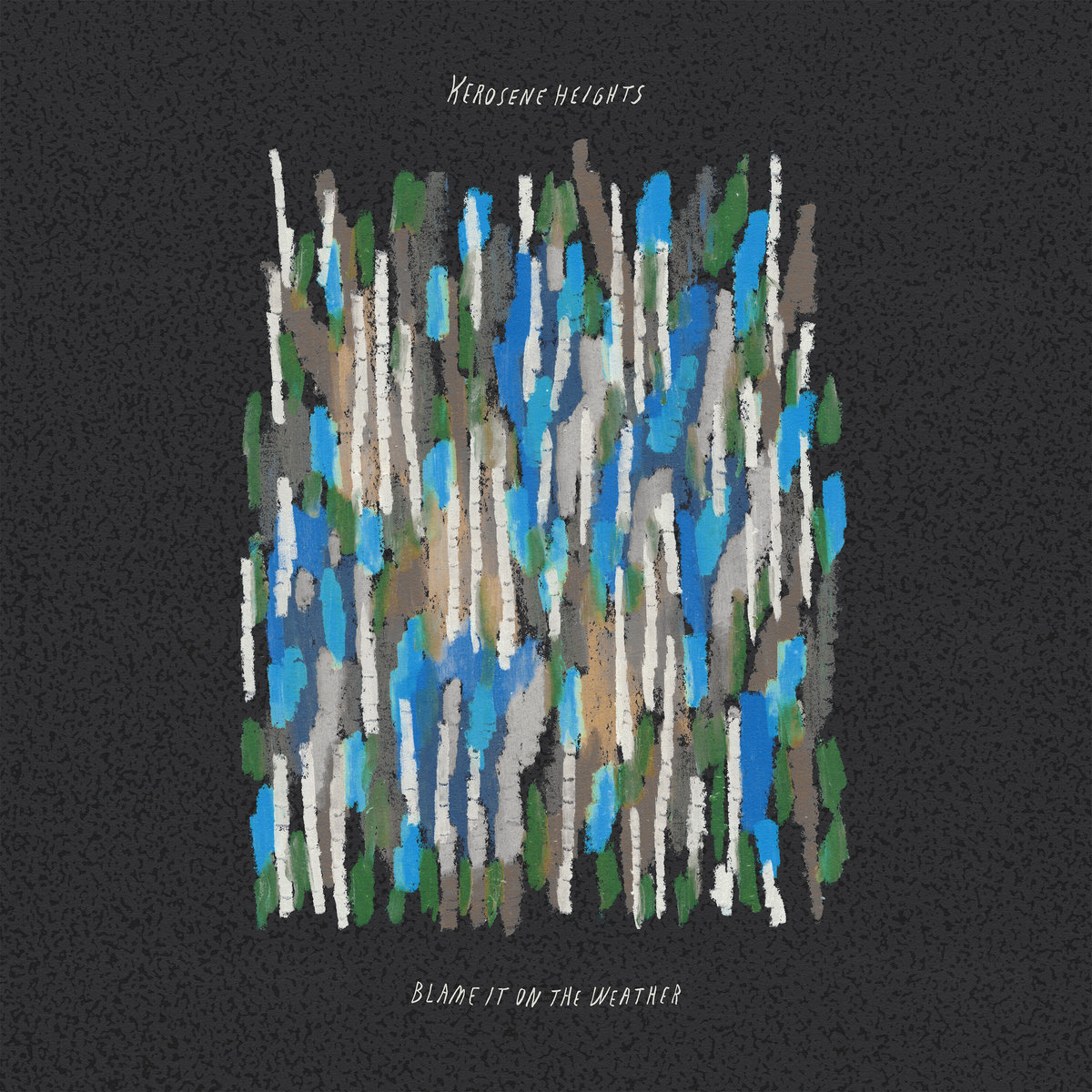Stay Inside – Ferried Away: A Reflection by Ben Sooy
/Self-Released
Last week, I found the CD-R with my wedding photos. My wife and I got married in 2011, and some of these photos I already had saved on my phone (the ones I uploaded to Facebook), but a lot of these I had not seen in years. We were so young, so beautiful! Look at all our friends, our family, our groomsmen and bridesmaids!
The beautiful couple and their beautiful friends.
I was hit with a particular kind of melancholy when I saw a group shot of me and my groomsmen: I don’t see these guys nearly enough. Some of these people, who once were my best friends in the world, I haven't seen or spoken to in years.
This shit happens. It happens all the time to most of us. As you get older, you may find that making new friends gets harder and harder. When you’re 19, and you’re going to school, you’re living on your own for the first time maybe, you’ve got roommates, you’ve got classmates, you’re wasting time at the coffee shop, you recognize the same faces, you strike up conversations, you go on dates.
Now you’re in your 30s, you’ve got a steady relationship, you’re making a little more money, so roommates aren’t necessary anymore. You’re still making new friends occasionally, meeting folks at work or whatever, but not as many deep relationships, and not everyone there is in your same life stage or shares the same values. A lot of your friends are pairing off and having kids and moving back to where they’re from to be closer to the grandparents. Friendships just die off.
This is, kind of, I think, what the album Ferried Away by Brooklyn emo post-hardcore band Stay Inside is about.
I miss you,
but I don’t have the time
where I could make it right.
Your daughter, your neighbors,
I wish they knew my name.
Let me get this out of the way first: Stay Inside is a band I truly love. They are heavy and melodic, weird and accessible, pretty much everything I love about this style of music. They are true sweethearts, too! Genuine people who care about others, and I get the sense that they try to center their lives around compassionate action. I know this because we have some friends in common (we both love the guys from Caracara), and I got to open for them once in Denver when they were on tour with awakebutstillinbed. We talked about guitar pedals and friends we love but don’t see as often as we’d like and growing up loving the Christian rock band Switchfoot. Great hangs! Thoughtful and delightful people.
Stay Inside is Bryn Nieboer, Chris Johns, Chris Lawless, and Vishnu Anantha.
This new Stay Inside record is a wonderful and perfect album, and I very much resonate with the theme: “Ferried Away is a collection of songs about people we love or have loved. Each song is dedicated to a specific person we know.”
Somewhere, I lost track
of someone I won’t get back.
Reflecting on every once-significant relationship that drifts off or fades away is like giving a eulogy for people who are still alive. You can let these relationships disappear unnoticed and unmourned, or you could do the hard work of remembering.
I’ll admit this was all my fault.
Shiver when I drive past your car.
Still know your phone number by heart.
Still know your phone number by heart.
When a friendship falls apart or just fades away, there’s resentment, there’s guilt and regret. No one leaves these sorts of dissolutions without taking part in some of the blame.
I think the most difficult part of friendships and relationships ending is that no one likes to be the villain in any story they’re in. If we’ve acted poorly or hurt someone through action or inattention, that’s hard to deal with. It’s easier, mentally, to fall into one of two untrue mindsets: we’re totally the victim, or we’re totally the villain.
It’s easy to spin the events in our memory so we feel justified in what we did or didn’t do. But sometimes, we hurt folks! Part of healthy remembering is taking ownership of how we acted like an asshole.
I’m sermonizing. I know I’m sermonizing! But this album makes me reflect on how I haven’t called my guy Ward in, like, eight years, and I’m feeling all kinds of ways about it.
Why do I feel so bad about every relationship where we used to be close but we’re not anymore?! I have lived in seven or eight cities over the course of my life! I have met a simply innumerable number of people. It would be totally unreasonable to expect that I’ll have the capacity and energy to carry on a deep friendship with everyone I’ve ever loved or considered a friend.
But it still hurts! I still feel guilty! I wonder what Josh, my best friend from 2nd grade in Cleveland, is up to. I wonder if he’s happy. If he’s loved. Does he still like nu-metal? I hope he feels like he belongs somewhere.
Once things go bad, everything’s my fault, isn’t it?
Here are a couple of stray thoughts about the music on Ferried Away: The horn parts on this record are truly inspired. There’s a warmth and timelessness to hearing trumpet leads this good and pure, like post-hardcore visited by the ghost of Chuck Mangione [complimentary].
And the songs themselves are so refreshing and surprising. No lyrical image is simple, and no melody is rote. On any given piece, instead of a traditional bridge, there are long instrumental sections that take the listener on a journey to strange and undreamed places. (Shout out to long instrumental sections that take the listener on a journey to strange and undreamed places; gotta be one of my favorite forms of song composition.)
Next time I see y’all might be through my dead eyes.
The central premise of Ferried Away is the hope (or maybe the anxiety?) that everyone you’ve ever loved but lost touch with will meet up again at the end of the world at Steeplechase. In the band’s own words, “Steeplechase Park was one of the original Coney Island amusement parks that burned down in 1907. To many New Yorkers, Coney is a fun and beautiful place that you’ve always wanted to visit but never make the time. This album lets the historical Steeplechase stand in for a sort of purgatory of memory where the people you love live between the last time you see them and either of your deaths. Whether you’re estranged, or in different states, or just fallen out of touch, these are songs for the friends in Steeplechase.”
There’s a comfort for me in the thought that there might be a reunion at the end of time. This hope reminds me of my favorite Wild Pink lyric: “Wherever we go when we go for good // Do you think we really meet again like we hoped we would?”
But to be totally real with you, I don’t want to wait until after death to speak to the folks I’ve loved but have lost touch with.
Listening to this album and reflecting on these themes made me realize how much I miss my buddy Andy Grinnan (one of my roommates and best friends from college and one of my groomsmen). So, a couple of Saturdays ago, I texted him, and he immediately called me. Wild that almost six years or something had passed, and we still loved each other! We caught up on life and work, his daughters, and his hopes for the next phase of his life and career. He was proud of me and all the cool stuff happening with my band.
I don’t know, It was nice. We’ve talked a couple of times since and texted way more often. He’s my brother. I love him. Randomly (or not so randomly if you believe that events might be something more complicated than coincidence), he and his wife will be in Salt Lake City the same weekend my band will be. I’m going to see Andy effing Grinnan in person! After too many years.
This wouldn’t have happened without the music of Stay Inside, I don’t think.
What’s my point? Maybe we can be better friends! Maybe music can actually benefit our real lives. Maybe listening to Ferried Away is the only thing between you and reconnecting to parts of your past life. I don't think it should take the end of the world to meet back up with people you once held dear. With their sophomore effort, Stay Inside have not just crafted an excellent record, but an album-length reminder of what being a human is all about.
Ben Sooy lives in Denver, Colorado where he writes songs and plays guitar with his best friends in the band A Place For Owls.
